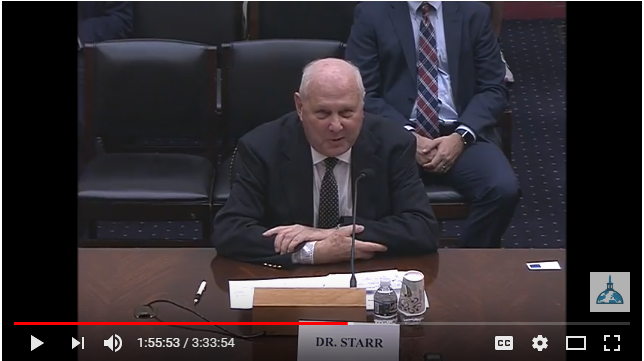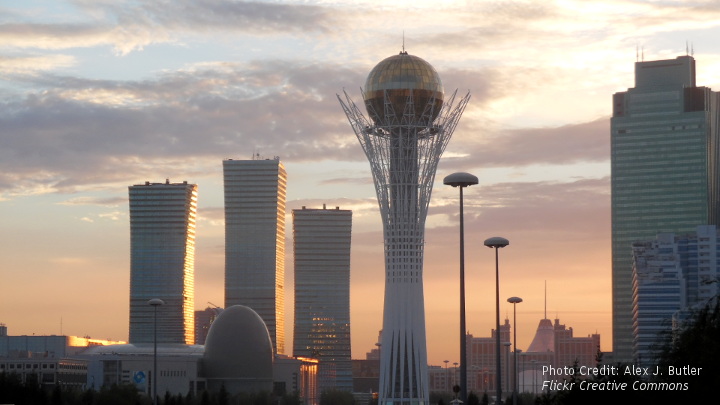On Aug. 12, leaders of the five Caspian Sea littoral states—Russia, Iran, Kazakhstan, Azerbaijan and Turkmenistan—gathered in the Kazakh port city of Aktau to sign the Convention on the Legal Status of the Caspian Sea. The agreement ended decades of uncertainty over the Caspian Sea’s status, clarifying the boundaries between each party’s territorial waters. And while the agreement left open the key question of ownership over the rich oil and gas deposits lying under the Caspian’s seabed, it provides a framework for these five countries to work out arrangements for joint exploration and drilling, as well as long-stalled pipeline projects. In an email interview, Mamuka Tsereteli, a senior research fellow at the Central Asia-Caucasus Institute in Washington, D.C., discusses the significance of the deal.
World Politics Review: What is the relevant history of the dispute over the Caspian Sea’s status? Given that backdrop, what is the significance of the agreement reached last month between the five Caspian littoral states?
Mamuka Tsereteli: The Caspian Sea is the largest body of water in the world that is not naturally connected to the open seas. This technically makes the Caspian a lake, but because of its size and its salty waters, it has been called a sea since ancient times. During the Soviet period, two Caspian littoral states—the Soviet Union and Iran—shared the sea for navigational as well as economic development purposes, though the Soviets had dominant control over it.
Since the collapse of the Soviet Union, the political and economic geography of the Caspian Sea has changed. Azerbaijan, Turkmenistan and Kazakhstan joined Iran and Russia as new sovereign states along its shores. They demanded that the Caspian be treated as a sea, and that its surface—as well as the rich energy resources under its seabed—be divided in proportion to each littoral state’s coastline, in accordance with the United Nations Convention on the Law of the Sea. This arrangement would have reduced Iran’s portion from a de jure 50 percent and de facto 20 percent in Soviet times, to about 14 percent, understandably leading to resistance from Iran. Russia, meanwhile, had a very ambiguous approach, developing its own offshore resources in the Caspian while also supporting Iran’s position that it be treated as a lake, which would divide the Caspian and its resources equally among littoral states. Russia also called for a veto right for each country on energy infrastructure development in any part of the Caspian, nominally due to potential environmental concerns.
Despite these disagreements, several major energy projects have been developed in the Caspian Sea over the past two decades, and certain parties have made arrangements with each other based on the treatment of the Caspian as a sea rather than a lake. In fact, Kazakhstan, Russia and Azerbaijan started development of their own resources based on this approach. However, Turkmenistan and Iran disputed the rights of Azerbaijan to some oil and gas fields in the Caspian, and until very recently these disputes were the key obstacle to a broader agreement.
That agreement, the Convention on the Legal Status of the Caspian Sea, signed on Aug. 12 in Kazakhstan, defines broad principles for the treatment of the Caspian Sea. The agreement establishes territorial waters extending 15 nautical miles from each littoral state’s coast, and an additional 10 miles of exclusive fishing waters. But it does not resolve all disputes and leaves significant room for further bilateral negotiations on disputed energy fields, primarily between Iran and Azerbaijan, as well as Azerbaijan and Turkmenistan.
WPR: What impact is the new convention likely to have on future development of the Caspian’s energy resources?
Tsereteli: Article 14 of the agreement allows for the potential development of underwater pipelines in the Caspian. This language generated cautious optimism among supporters of the proposed Trans-Caspian Gas Pipeline project, which would connect Turkmenistan with Azerbaijan. Although it contains ambiguously defined conditions related to environmental standards, this part of the agreement has stimulated enthusiasm, including among the private sector. The question is why Russia, which was previously opposed to the pipeline, decided to move forward with this language. There is no doubt that Russia was a key driver of the negotiation process for the agreement, which now, in theory, may allow shipment of natural gas from Turkmenistan to Europe, potentially eating into Russian market share.
It looks like the defining factor for both Russia and Iran to support the agreement was security. Article 3 of the convention, among others, stresses that only parties to the agreement shall maintain a military presence in the Caspian Sea; that parties to the agreement shall not allow their territory to be used by other states to commit aggression or undertake military actions against another party; and that navigation in, entry to and exit from the Caspian Sea shall be exclusively by ships flying the flag of one of the parties. These restrictions are aimed mainly at the U.S. and NATO, but many observers see China as a target here as well. They serve the long-standing objective of Russia to prevent a military presence by other major powers in areas that Russia considers to be inside its sphere of strategic interest. This objective is shared by Iran, too.
The broader energy implications of the convention remain to be seen. The Trans-Caspian Gas Pipeline has a long way to go before practical implementation, as does any other energy project. Moreover, Russia still has formal and informal leverage over the other signatories of the convention and can easily block any project that displeases it. Historically, Russia has been less resistant to the development of oil export pipelines in the region, so the potential export pipeline connecting the Kashagan oil field in the Kazakh sector of the northern Caspian to Azerbaijan, and beyond to the Black Sea and Mediterranean ports, may be one project with less political risk. In any case, it seems safe to assume that there was some coordinated effort between Azerbaijan, Turkmenistan and Kazakhstan to incorporate pipeline-friendly language into Article 14 of the agreement.
WPR: How important is this deal for Iran given its isolation in the face of tough U.S. sanctions, and to what extent does it provide a political and economic lifeline for the Iranian government?
Tsereteli: This deal will not resolve any of Iran’s major sanctions-related problems, but it is still important for several reasons. First of all, the convention provides Iran a security guarantee, since it prevents the presence of U.S. troops in the Caspian basin, and no Caspian littoral state will allow the use of their territory for military action against Iran. Some parties are violating other international treaties, which might call into question their trustworthiness—Russia’s violation of the Budapest Memorandum of 1994, guaranteeing Ukraine’s sovereignty, is a good example—but it is unlikely that any Caspian littoral state will confront Iran or support U.S. efforts to do so.
From the energy perspective, the convention creates a legal framework for Iran and Azerbaijan to discuss and negotiate ownership of several disputed fields in the southern Caspian. In fact, even earlier this year, in March, the two countries signed a memorandum of understanding on joint development of the Caspian’s resources, indicating a willingness to compromise. This document, like the convention, mentions no specific disputed energy fields, but the primary focus will likely be on the Alov, Sharg and Araz oil and gas fields, which both Azerbaijan and Iran claim as their territory. Azerbaijani exploratory work on the fields was disrupted by Iranian gunboats in 2001, nearly provoking an international conflict. Since then, no work has been done on the fields, and most likely, this issue will be at the top of the agenda under this bilateral framework.
At the same time, U.S. sanctions against Iran may pose difficulties for collaboration with Azerbaijan, given the scale of Azerbaijan’s national oil company and its high level of integration in international markets and supply chains.





